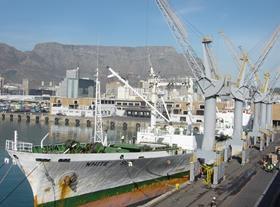
In a season where South African citrus shipments reached new milestones, the increased use of specialised reefer vessels has proven to be an incredibly strategic part of the logistics chain.
This is the view of the South African Citrus Growers’ Association (CGA), which has said that specialised reefers must remain as a key part of shipping of the coutnry's citrus chain in future.
“There was a 33 per cent increase in shipments in specialised reefer vessels,” the CGA told growers. “Shipments to Japan, China, the US, which saw a record of 12 vessels this year, the EU and Russia went incredibly smoothly while for the most part shipments in containers were delayed.”
The CGA noted that specialised reefer vessels would therefore remain a key instrument to service these important markets.
As the Southern African citrus export volume grows to around 170m cartons, some 105,000 reefer containers, in the years ahead the pressure on the reefer container logistics chain will most likely become very constrained.
“Imagine in the future a year with 170m cartons to be exported and experiencing similar disruption at the port container terminals as this year, without specialised reefer vessels (to fill the gap) – it’s simply unthinkable,” the CGA continued.
In addition to this, there was a considerable increase in reefer containers railed to Durban for export. Containers were loaded at Bela Bela, Tzaneen, Musina and City Deep sidings and for the most part made all the planned shipments from Durban.
The CGA said that as a result of this year’s rail success a leading exporter, the GoGo Group, hosted a large contingent of the Limpopo provincial and municipal leadership at its packhouse and coldstore facilities in Marble Hall.
The idea was for the Limpopo Economic Cluster to see how the GoGo Group had successfully integrated rail transport into its logistics chain, a strategic move implemented a few years ago.
By all accounts the group achieved remarkable success, which pleased the politicians. The GoGo Group railed 70 per cent of all the containers destined for shipment via Durban this season and 100 per cent of all exports.
Thabo Mokone, the chairperson of the Limpopo Economic Cluster, said he wished to see this example implemented in all the main citrus centres in Limpopo, which is the most northern province in South Africa and in the heartland of the citrus industry.
It was revealed that the Limpopo Province would become constrained regarding transport as production increases and road transport demand exceeds supply.
Moving citrus by rail to the ports from centres across Limpopo will be paramount in ensuring the fruit actually reaches the ports for export.
The CGA said that the transport challenges faced this year by growers up in the north are another learning curve, highlighting just how important rail transport is for the northern regions of the country.
Enjoyed this free article from Eurofruit Magazine and its team of editors? Don’t miss out on even more in-depth analysis, plus all the latest news from the fresh produce business. Subscribe now toEurofruit Magazine.



